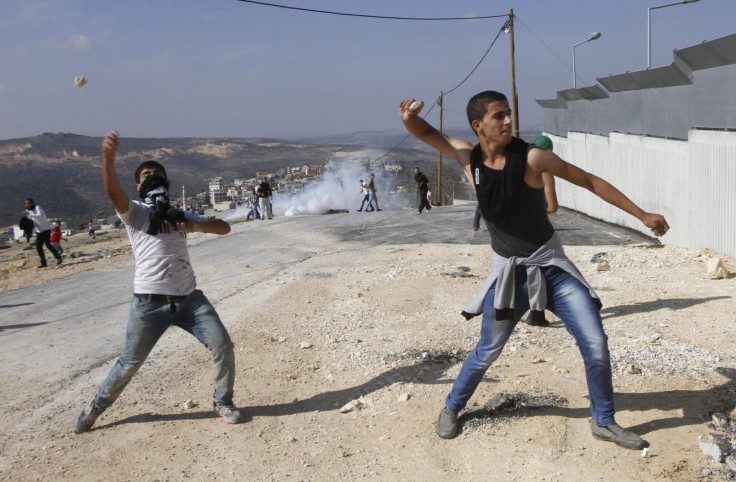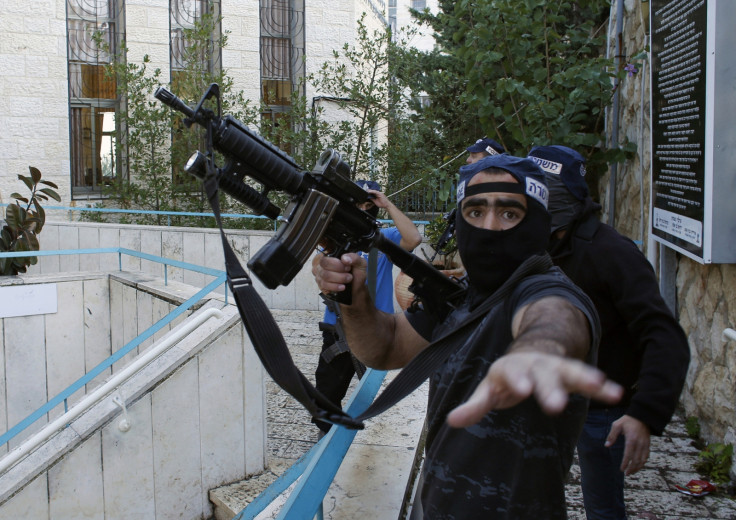Jerusalem Terror was a Scene from an anti-Semitic Pogrom - but We are Defiant

For many Israelis the horrific images of the terror attack in a Jerusalem synagogue invoked scenes of a pogrom from an earlier era. The blood-stained prayer shawls, overturned tables and scattered holy books came as a new low in the latest surge of violence to plague this city.
This terror attack marks an escalation in terms of sophistication and planning – the half dozen recent terror attacks have relied mainly on 'cold weapons', vehicles and knives. Here, two terrorists armed with a handgun and meat cleaver killed four innocent Jews during morning prayers, plus a fifth victim, a policeman, was killed in the subsequent shootout. Another escalation was signalled by the deliberate targeting of a synagogue. For the terrorists it's clear: this is a religious conflict.
Since the summer the Palestinians, led by Hamas but aided and abetted by the more pragmatic factions, have played up the religious nature of the conflict. The main focus has been the propaganda over Israeli intentions over the Temple Mount. The truth, a small minority does have ambitions to pray at the site where the Jewish temple once stood. However Prime Minister Netanyahu has clarified on numerous occasions that there is no intention to alter the status quo on the Temple Mount, and Israel will continue to allow the Muslim Waqf to maintain control of the site.
The Palestinian president Abu Mazen has joined in the false propaganda game, but perhaps mindful of his recent commitment to Secretary John Kerry to dial down the incitement, on this occasion he was quick to condemn the attack.
On the ground Abu Mazen deserves some credit, as his policy has been to continue close security cooperation with Israeli forces across the West Bank. Whilst parts of Jerusalem are burning, the West Bank has remained relatively quiet. Whilst there have been some exceptions – in last week's stabbing at a Tel Aviv train station the terrorist came from Nablus – the vast majority of recent terror has emanated from Israeli-controlled East Jerusalem.

Of course, Abbas is not maintaining quiet in the West Bank for love of Israel, but for the sake of self-preservation for the Palestinian Authority. Despite the Palestinian unity government, animosity remains high between Hamas and Fatah, and a descent into violence and chaos in the West Bank could weaken Abbas and help his Islamist Palestinian rivals.
For Israeli policy makers and defence officials, dealing with terror from inside Israel poses unique security dilemmas. Yesterday's terrorists did not come from an isolated village, but from Jaber Mukaber, an Arab neighbourhood of East Jerusalem bordering Jewish communities. The Arab residents there possess blue Israeli ID cards, and like full Israeli citizens have complete freedom of movement across the whole country.
Following the attack, the Minister for Internal Security called up a further deployment of troops to the capital. In addition, guards were posted outside all synagogues and security augmented at schools and kindergartens. There was a call for all licensed gun carriers to volunteer for the civil guard as an additional layer of protection across the capital. More controversially, last night, the Prime Minister once again announced the houses of the terrorists would be demolished. This is meant to create a deterrence, however the security establishment is divided over whether this is an affective policy.
Despite the sadness and the tension here in Jerusalem, there remains a strong sense of defiance. Terror is not new to Jerusalemites and sadly this will not be the last attack. The wave of suicide bombings a decade ago did not weaken Jerusalemites' resolve, and neither will this.
Richard Pater is a political analyst based in Jerusalem. Originally from London, he has served in the IDF reserves for the last ten years. Richard is the Director of the Britain Israel Communications and Research Centre (BICOM) in Israel.
© Copyright IBTimes 2025. All rights reserved.





















